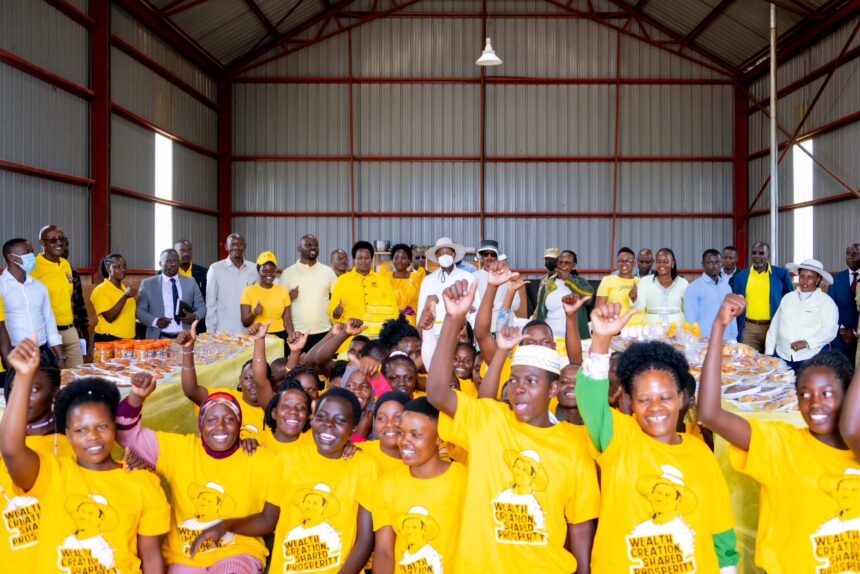President Yoweri Kaguta Museveni has called on Ugandan youth to fully embrace the free education programs provided under the Universal Primary Education (UPE) and Universal Secondary Education (USE) initiatives, and to actively engage in practical skills training to secure a place in the money economy.
While addressing the nation this week, the President emphasized that academic education must be followed by hands-on vocational skills such as carpentry, tailoring, welding, and metal fabrication fields that he said are essential for wealth creation and self-reliance.
Museveni stressed the importance of the country’s industrial hubs, which have been established across various regions to provide specialized skills training to young people. According to him, these hubs are not just training centres but strategic platforms to equip the youth with competencies needed to create jobs, start businesses, and contribute meaningfully to Uganda’s economic transformation.
“We must fully utilize the free education provided under UPE and USE programs. Following that, our youth should acquire practical skills in areas such as carpentry, tailoring, and welding. The industrial hubs are essential for preparing them to be part of the money economy,” he said.

In a move aimed at ensuring the sustainability of these efforts, the President announced that government startup capital under the Savings and Credit Cooperative Organization (SACCO) model will now be disbursed through District Local Governments. He directed that graduates of the industrial hubs should be given priority access to these funds, which are intended to enable them to establish their own income-generating enterprises. “I have directed that SACCO funds be allocated through the District so that our hub graduates can easily access startup capital and create wealth,” he added.
Museveni’s directive is expected to strengthen the government’s ongoing effort to transition more Ugandans from subsistence livelihoods to the formal money economy. He noted that access to capital remains a significant barrier for many youth, even after acquiring vocational training. By connecting financial support directly to the District level, he said, government would eliminate unnecessary bottlenecks and ensure transparency in fund disbursement.

The President also challenged local leaders and district officials to closely monitor the implementation of the SACCO funding program, warning against corruption and mismanagement. “Corruption and negligence have no place in this program. District leaders must ensure the money reaches the youth, and the youth must be ready to work, not to squander opportunities,” he said.
Government statistics indicate that more than 50 industrial hubs are already operational across Uganda, training thousands of youth in trades ranging from mechanics and electrical installation to tailoring, baking, and hairdressing. Many of these graduates have started small businesses, formed cooperatives, or returned to their communities with skills that support their livelihoods.
First Lady and Minister of Education and Sports Janet Kataaha Museveni praised the progress being made, stating that practical skills were now being seen as valuable assets. “We are seeing significant change. These youth are beginning to understand that skills are a form of wealth, and that with proper financial support, they can become employers, not just job seekers,” she said.

Despite some reported challenges such as limited equipment in some training hubs and delays in the release of SACCO funds, the President remains optimistic that the strategy will create a new generation of skilled, self-reliant Ugandans. He reiterated that the foundation for a prosperous Uganda lies in empowering young people with education, skills, and the means to thrive economically.
As the country continues to prepare for the 2026 general elections, youth empowerment through vocational training and accessible financing is expected to remain a key pillar of the government’s socioeconomic agenda.







